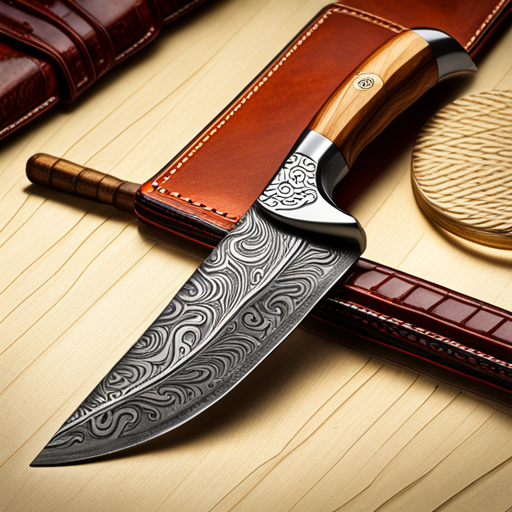Damascus steel is widely regarded as one of the best materials for the craft of knifemaking. It has a long, storied tradition and is known for its strength, durability, and beautiful patterned designs. But before you commit to using Damascus steel in your project, it’s important to consider both the advantages and disadvantages of this material.
The first advantage of Damascus steel is its strength and durability. This type of steel is renowned for how well it holds an edge, making it a favorite choice among professional knifemakers. Additionally, because Damascus steel has been heat treated multiple times in different ways, it also has excellent wear resistance and can handle higher levels of stress than other types of steel.
The second advantage is its unique and beautiful patterns. Damascus steel has a visually appealing pattern of alternating light and dark bands, which are created during the forging process. Not only does this look great, but it also adds to the strength of the blade by providing a degree of flexibility and shock absorption.
However, Damascus steel does have some drawbacks. For one, it is expensive; the intricate forging process and the use of high-quality materials make it more expensive than other types of steel. Additionally, Damascus steel is difficult to sharpen because its hardness varies throughout the blade. This means that a honing rod may not be enough to sharpen the entire blade. A separate honing stone may be needed to ensure that the whole blade is sharpened equally. Finally, it is important to note that Damascus steel is not as hard as other types of steels used in knifemaking, so it does not hold an edge for very long and requires frequent sharpening.
Despite these challenges, Damascus steel offers many advantages. For starters, it is aesthetically pleasing; the complex patterns created by forging give this type of steel a unique look that adds to the overall beauty of a knife. In addition, Damascus steel is incredibly durable and can last for generations with proper care. It also has superior corrosion resistance, making it an excellent choice for knives that will be exposed to the elements. Finally, Damascus steel is a great option for custom knifemakers who are looking to create one-of-a-kind pieces. The intricate patterns and beautiful colors can’t be replicated with other types of steel, making Damascus steel truly unique.
In short, Damascus steel has many advantages for knifemaking. However, there are some drawbacks to consider as well. For one thing, Damascus steel is often more expensive than other types of steel due to the amount of time and effort required to create it. Additionally, since each piece is unique, it can be difficult to find Damascus steel in large quantities, which can pose a problem for those looking to mass-produce knives.
Finally, some knifemakers may find it difficult or intimidating to work with Damascus steel due to the complexity and the need for specialized tools and techniques. However, with patience and practice, this type of steel can be mastered over time.

